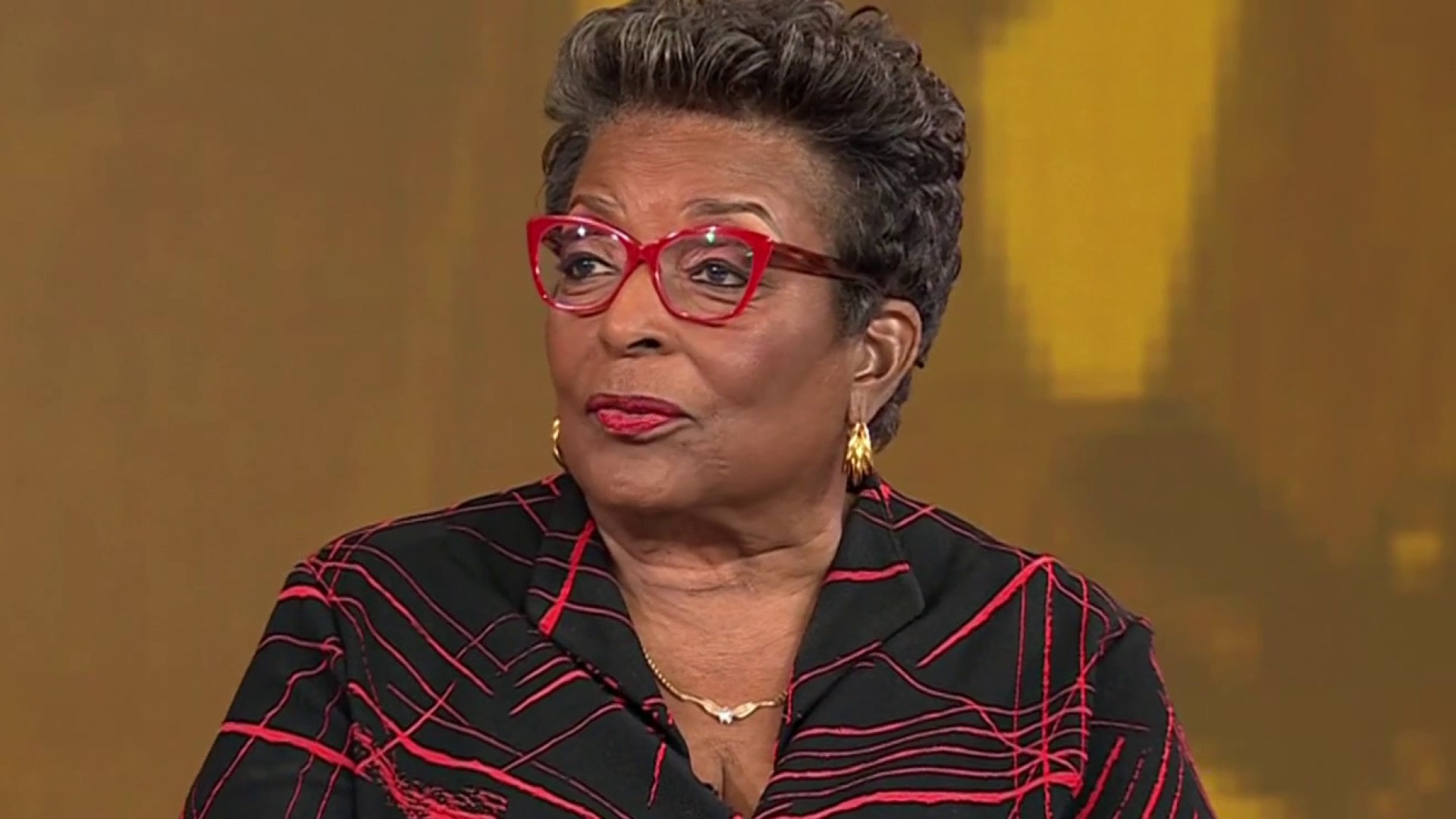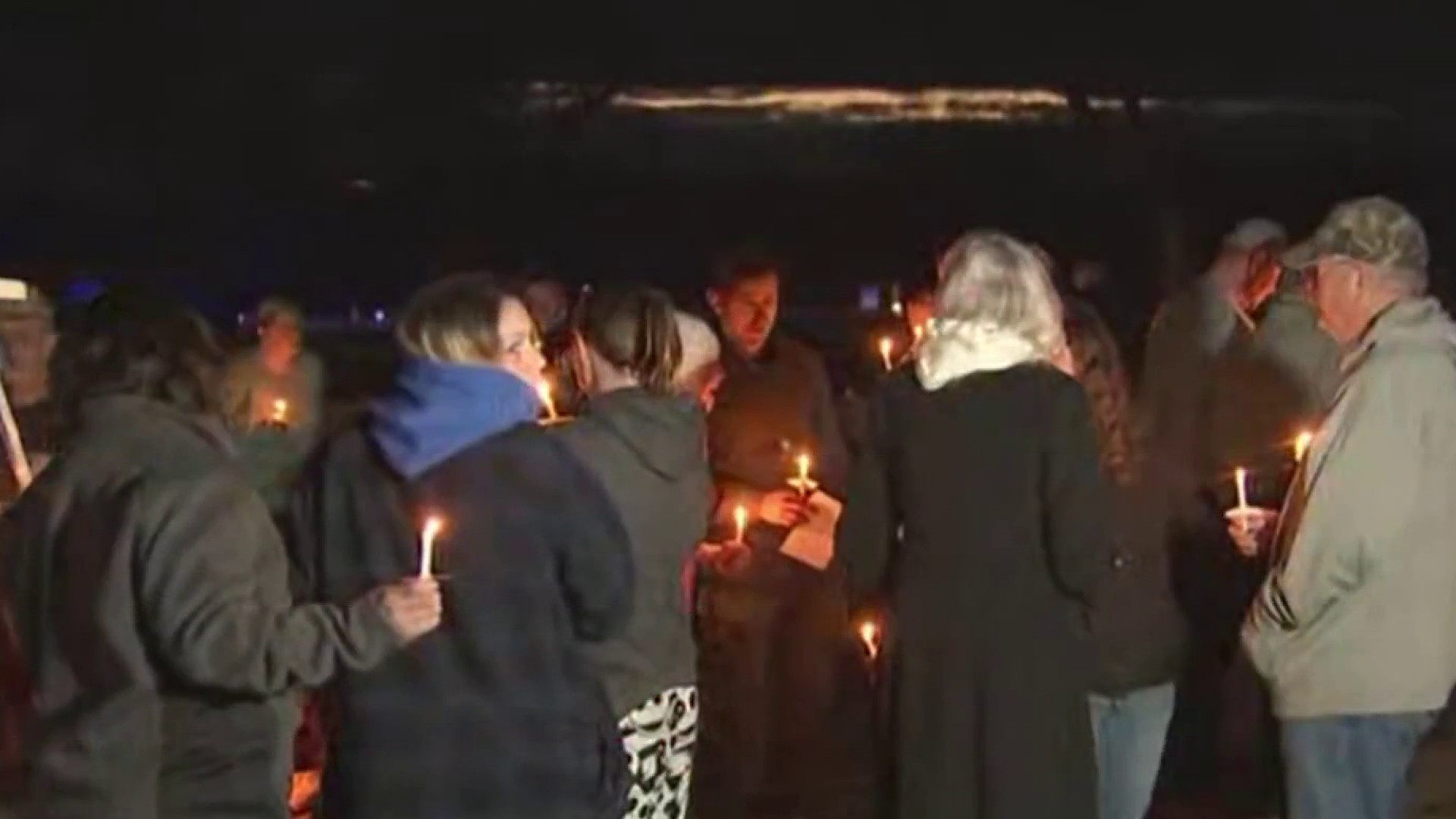How the Mystics are helping Rui Machida acclimate to life in the WNBA originally appeared on NBC Sports Washington
Nearly a half-hour after a preseason practice concluded, Rui Machida and Myisha Hines-Allen emerged from the Washington Mystics locker room with a brown paper bag and a small gift for anyone who remained in the facility. Most of the gym had cleared out at that point after a rigorous practice, but media members and support staff were hanging around, conducting interviews and casually re-acquainting themselves with one another.
Machida and Hines-Allen made their rounds to everyone who was left. Machida would approach each person with a wide grin and Hines-Allen would whisper a short phrase in her ear.
We've got the news you need to know to start your day. Sign up for the First & 4Most morning newsletter — delivered to your inbox daily. Sign up here.
"Snacks from Japan," Machida would echo as she handed out a handful of rice crackers. Treats, when translated to English, are 'Happy Turn, 'Soft Salad,' and 'Kabukiage.'
That was how Hines-Allen helped welcome one of the most talented international point guards to the Mystics earlier this year. Ingraining Machida - who does not speak English - was a task Hines-Allen took head-on as the Japanese player began her first WNBA season. And despite not sharing a common language, the Mystics have embraced their new backup point guard as best as language limitations can allow.
Local
Washington, D.C., Maryland and Virginia local news, events and information
"Obviously there's a language barrier with teammates," Machida said through her interpreter Micky Takei. "But there's so many people, so many teammates came up to talk to me without translator so I really appreciate that and, of course, basketball is a universal language so I'm just playing with our language and started getting used to it."
For years, the Mystics have been lauded for how welcoming the environment is and for how the team feels like one big family. Players such as Leilani Mitchell, Theresa Plaisance and several younger players would attest to that. Some credit the team's success over the past few seasons to both of those traits. But welcoming someone is one thing. Making them feel comfortable over the course of a season while not being able to communicate verbally is another.
That hasn't stopped Washington from pulling out all the stops for Machida.
"I think her new cheerleader every day is Myisha. Myisha has introduced [Machida] to certain words, to certain chest bumps, to certain things," Washington head coach Mike Thibault said. "It's been good. They've been great. There's some universal language about playing, too, but I think that she has felt welcomed and her teammates certainly have enjoyed her."
Giving everyone a reverse trick-or-treat surprise isn't the only way the Mystics have tried to get Machida comfortable. She's already received a tour of D.C.'s monuments and the National Mall on a scooter, although she's not quite sure the method is the safest manner to do so.
When it comes to WNBA life, away games are a new concept for her. In Japan, there are no road games in the traditional sense. A challenge from that is finding food on the road, especially in a country that has few Japanese-speaking people. So, the Mystics often try to eat as a group.
There are also no time zones in Japan, so the constant jet lag and strain on a schedule are new to Machida as well. To be honest, not even the most veteran WNBA players are totally accustomed to it.
But it's a full-team effort to build that camaraderie that is hopefully being reflected on the court. Those with overseas experience are familiar with playing on a team where not everyone speaks the same language.
"I think everyone stepped into it," Hines-Allen told NBC Sports Washington. "I'm just more out there because, again, our team is phenomenal with welcoming new players. Whether they're going to be there the whole season, or is it just training camp or there's a couple days and it's just- we're all so welcoming. It's like a family here. I guess I was a little more out there but everyone in the locker room was welcoming. It made her job a lot easier transitioning from Japan."
Most of the team has learned from Hines-Allen and how forthcoming she is in her interactions with Machida. They may not verbally be able to communicate but there's an exchange constantly happening between the two. For the most part, it's a lot of laughing as neither can understand one another.
Despite all of the steps Hines-Allen has taken, though, including multiple trips to Machida's apartment, there aren't many Japanese words she's been able to pick up on.
"For real for real, I only know 'Nani' (何) because she tells me that all the time, which means 'what,'" Hines-Allen said.
"AKA she doesn't understand nothing I'm saying still. She's like, 'what do you want? What are you saying? What are you saying? What do you mean,' then I got to again, break it down, break it down slowly, but that's really like the only word that I will actually say."
Machida hasn't mastered the English language yet, either. She has, however, picked up on words and phrases throughout her time in D.C. Mostly those phrases are for when she's on the court, understanding what plays are called and how her teammates communicate. She may not know the verbatim translation but she knows the specific sounds indicate what she's supposed to do in certain situations.
It's imperative that she does more than others, given her role as a backup point guard behind Natasha Cloud. Throughout the first half of the season, she's averaged 2.7 assists off the bench in 14.0 minutes per game. That may not seem like much but Machida holds the third-highest assist percentage in the league at 40.0%. She only trails Cloud, the WNBA's assist leader, and Los Angeles Sparks guard Jordin Canada.
She's finding a way to the job done in her limited playing time and lack of dialogue. Having an innate connection with a teammate helps. The one player she's gotten extremely familiar with on the court is Elizabeth Williams - one of the most experienced overseas players on the roster. They spearhead the second unit as a dynamic duo.
"The language is hard," Williams said. "I mean, we sit next to each other on the bus so that's the first kind of layer of us connecting but Micky's the translator, and so if we ever like want to ask each other anything we go through him, but honestly, like, body language speaks a lot. And so like even high fives and like really simple things like or a smile, like that's honestly how we connect. So I try my best to do stuff like that."
The challenge has been a new one for many across the Mystics organization. The team and Thibault knew that when they brought her in and hired a new trainer to join the team's coaching staff. Her talent and vision as a passer are more than worth the additional effort the team has put forth in making Machida feel a part of the team.
But for Machida and her teammates, it has not slowed down their progression one bit. Finally, it appears they've found a backup point guard that they've been missing since veteran Kristi Toliver left after the 2019 WNBA championship season.



